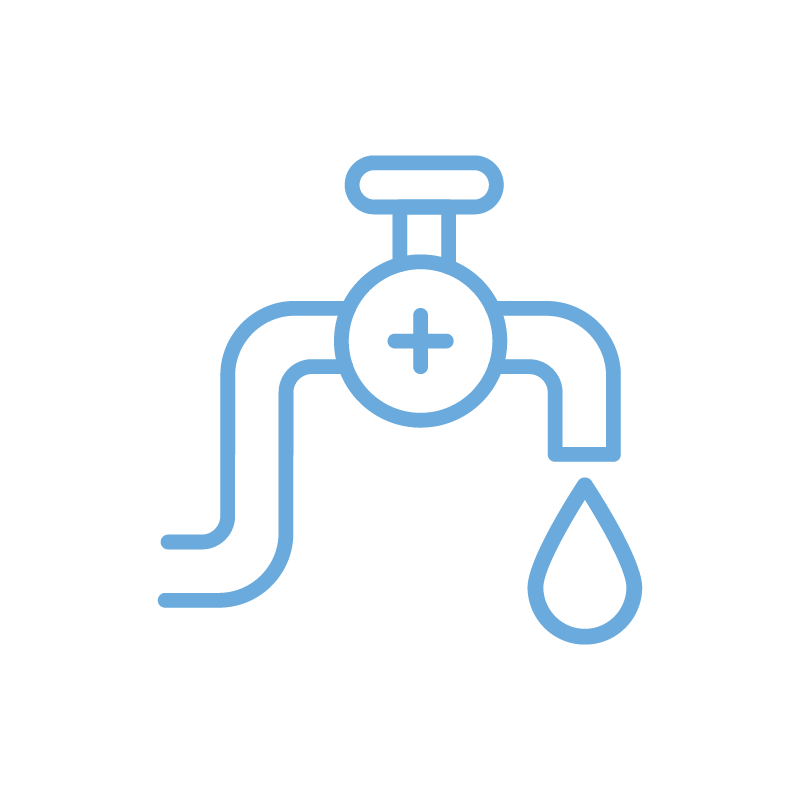On June 2, 2020, Bolivar voters will be asked to transfer the responsibility of our water and wastewater system to Liberty Utilities to better comply with new regulatory demands on Bolivar customers. The city of Bolivar’s proposed partnership with Liberty Utilities protects our water and wastewater systems and will allow Liberty Utilities to better manage EPA-required upgrades for safe and affordable service.

Drinking Water
Protecting safe, affordable, drinking water is one of the most important responsibilities we have.

Wastewater
Bolivar's existing sewer plant cannot properly treat wastewater without costly upgrades.

Working Together
Bolivar is working with Liberty Utilities to understand the issue and help solve the problem.
Understanding how we got here:

First Warning Sign
Back in 1998, the Missouri Clean Water Commission placed Piper Creek on its list of impaired waterways. That was the first warning sign.

Consent Order Issued
But it wasn’t until September 2007 that the EPA issued a consent order requiring the city to reduce inflow and infiltration. I&I happens when rainwater enters the closed sewer system and inundates the capacity of our sewer plant. Or, when homeowners connect their sump pumps or rain gutters to their sewer line.

Plans Required
The EPA also ordered the city to submit a plan of short and long term capital investments, operations and maintenance issues.

TMDL Issued
In November 2010, the EPA issued a TMDL or Total Maximum Daily Load for Piper Creek and Town Branch. The TMDL order imposes very low phosphorous and nitrogen limits that are unachievable with our current system.

City Challenges TDML
In October 2016, to try to get some relief, Jefferson City attorneys for the city sued the EPA challenging the TMDL.

2-Year Moratorium
In April 2018, the federal court issued a two-year moratorium to allow the city to seek a variance with the Missouri Department of Natural Resources and the Missouri Clean Water Commission with approval from the EPA.
That means the city must have a plan to fix this problem by 2020.

Working on Alternatives
Since then, the city’s wastewater plant has been working with engineers to submit a variance to DNR.
The variance would modify some of the water quality standards that protect aquatic life affected by excess nutrients and algae in Town Branch and Piper Creek.
But the variance would require the city to upgrade its wastewater treatment and collection system to achieve the highest available system that is “affordable” to Bolivar’s ratepayers.
No one likes higher utility rates.
Let’s face it. No one likes higher utility rates.
But without additional action, EPA-required upgrades could force the city to increase sewer rates by nearly 38% in the first phase. And the city would be locked into a decades-long plan of compliance and enforcement, ongoing legal fees, and costly upgrades to the sewer plant.
FAQ
You have questions. We have answers.
Why sell the system?
Transferring the responsibility of our water and wastewater system allows the city to shift the burden for these federal- and state-imposed regulations to a company with extensive experience operating water and wastewater systems and ensuring their compliance with federal, state and local requirements.
Will this increase rates?
No one likes higher utility rates. However, to ensure safe and reliable water and wastewater services for Bolivar residents, investments in the system are unavoidable.
This agreement is a way to allow a company with resources and expertise to come in and tackle this issue head on and potentially spread the costs of compliance across more ratepayers in the future. Ultimately, the decision to raise rates will be made by the Missouri Public Service Commission. The Commission’s job is to ensure all utility rates are just and reasonable for the safe and reliable service you receive.
The projection is that rates will be less than what the city of Bolivar has proposed based on Liberty Utilities’ experience, efficiency, and existing services in the area.
Why Liberty?
Liberty already delivers electricity to homes in Bolivar. They have trucks and crews in the area already. The City already works closely with Liberty Utilities. Liberty also has significant experience with water & wastewater systems.
Why sell the water system too?
Our waterways and our streams are all connected. When the sewer plant overflows, it doesn’t stop at the property line or city limit and threatens Bolivar’s groundwater.
Plus, the more water used, the more sewer demand there is. Having the same operator simply makes sense.
Why now?
The court issued a two-year stay on litigation in 2018. That means the city must have a plan to fix this problem by 2020.
Ask a Question
Paid for by Liberty Utilities (Missouri Water) LLC, P.O. Box 127, Joplin, Mo. David Swain, President.


